| Posters | Videos | Games | Soccer Mags | Books | Products |
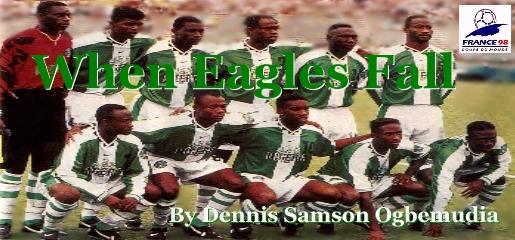 |
| Posters | Videos | Games | Soccer Mags | Books | Products |
 |
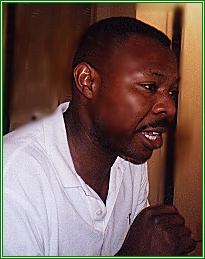 Dennis
Samson Ogbemudia is an intellectual. Although born in Benin City Nigeria,
he spent several years living in Japan where he mastered the Japanese language
in a short period of time While there, he was the editor of a newpaper named
Hiroshima Flotila while also writing for several other newspapers including
Japan's Daily Miuri, and OSS Japan a cultural magazine. Although playing
soccer practically since
Dennis
Samson Ogbemudia is an intellectual. Although born in Benin City Nigeria,
he spent several years living in Japan where he mastered the Japanese language
in a short period of time While there, he was the editor of a newpaper named
Hiroshima Flotila while also writing for several other newspapers including
Japan's Daily Miuri, and OSS Japan a cultural magazine. Although playing
soccer practically since
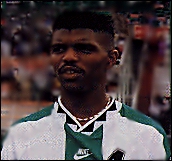 he was
born his interest intensified at the age of thirteen. An accomplished player
himself, he prefers to analyze and coach what Pele has dubbed " The
Beautiful Game". In fact he is seriously considering coaching here
in the United States. If he does, his experience, particularly his
analytical skill would have a positive affect on an already rapidly developing
soccer program.
he was
born his interest intensified at the age of thirteen. An accomplished player
himself, he prefers to analyze and coach what Pele has dubbed " The
Beautiful Game". In fact he is seriously considering coaching here
in the United States. If he does, his experience, particularly his
analytical skill would have a positive affect on an already rapidly developing
soccer program.
But no matter what Dennis Samson Ogbemudia does or is, he is first, and above all, a Nigerian. So observing the Nigerian National Team lose in France nearly brought tears to his eyes. He knows full well the qualities and potential that these players posess having followed and analyzed their play over the years. In an excliusive interview below, Dennis shares with us his unique insight, and what he believes to be the real reason the Eagles fell from the sky in the France.

Exclusive Interview
Q: Where are you from, and how long have you been involved in soccer?
A: I am originally from Benin City, Nigeria. and I have played soccer basically
since I was born. My interest intensified at the age of 13, and since that
time I have been following soccer not only in Nigeria but also on the
international level.
Q: Well what is your assessment of the current Nigerian soccer team as
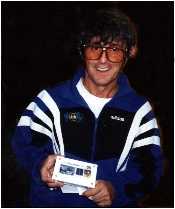 compared
to the teams
compared
to the teams
 of
World Cup 1994 and the 1996 Olympics?
of
World Cup 1994 and the 1996 Olympics?
A: Basically, the failure of this Nigerian team is what I attribute to being
a tactical failure. That is to say that there was a tactical collapse. Let
me say however that there is no doubt that Bora Multinovic is a good coach
with a great record, but the fact is that although he had alot of talent,
he made alot of mistakes. For example, after the first match he
insisted on using three defenders instead of four. Mutiu Adepoju was
pulled down from the midfield to become a defender. Nationally he plays as
an attacking midfielder, and when he became a defender it created lapses
in the midfield. The tactical collapse really took root however when when
we played Denmark. Denmark was a team that continued a relentless attack
using three defenders, and they kept attacking. We conceded two
goals using Peter Rufai. Bora knew that Peter came to the team only a month
ago as a result of an injury sustained by our main goalkeeper. After conceding
the two goals Bora should have in my opinion used four defenders and four
midfielders with two attackers and not based Nigerian team play on attack
(with three defenders) particularly when he knows he does not have the best
goalkeeper. This is when Mubio Baraku could have come in. Baraku would have
played the role of the defender which naturally he is. He would have created
an opportunity for Mutio Adepoju to be an attacking midfielder. That would
have fed into someone like Amokachi (recuperating from a knee injury) as
was the case with the Olympic team. This tactic would have nullified the
Rufai performance as a variable with regard to it's affect the matches' outcome.
Q: So are you saying that the Olympic team would have had a better result
in France.
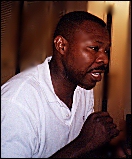 A:
The Olympic team was better because we had a different coach with a different
strategy.
A:
The Olympic team was better because we had a different coach with a different
strategy.
I think that it appeared as though this Nigerian team did not have a sense
of purpose or a mission in the match against Denmark. What I mean
by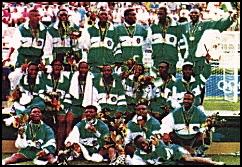 this is that there were situations where the Olympic Team would have used
long thrusts. However, instead of using long thrusts in some situations,
we continued to hold the ball at midfield. Holding the ball in midfield however
would have been tactically correct against a team like Brasil but not a team
like Denmark who used long thrusts to cut off our midfield. Our number
ten , Jay Jay Okocha held onto the ball just a little too long at times,
and Denmark was able to completely mat out Sunday Oliseh in the midfield.
The few balls that did manage to find there way to Kanu he (Kanu) was
not able to utilize. Therefore, a Jay Jay Okocha creating quick passes in
the midfield would have punched holes in Denmark's defense. With Kanu having
lost his speed for one reason or another, good passes from Okocha would have
broken the Dane's defense. Oliseh was not even in the match being
completely matted out. So Okocha should have used some passes to break
the defense but could not due to to what I believe to be instructions of
the coach. Now lets look again at Peter Rufai the goalkeeper who
actually did not do well against Chile. Although there was nothing at stake
in that match, after giving up two goals, Bora should have planned to utilize
another goalkeeper for the next match; someone like William Bara.
this is that there were situations where the Olympic Team would have used
long thrusts. However, instead of using long thrusts in some situations,
we continued to hold the ball at midfield. Holding the ball in midfield however
would have been tactically correct against a team like Brasil but not a team
like Denmark who used long thrusts to cut off our midfield. Our number
ten , Jay Jay Okocha held onto the ball just a little too long at times,
and Denmark was able to completely mat out Sunday Oliseh in the midfield.
The few balls that did manage to find there way to Kanu he (Kanu) was
not able to utilize. Therefore, a Jay Jay Okocha creating quick passes in
the midfield would have punched holes in Denmark's defense. With Kanu having
lost his speed for one reason or another, good passes from Okocha would have
broken the Dane's defense. Oliseh was not even in the match being
completely matted out. So Okocha should have used some passes to break
the defense but could not due to to what I believe to be instructions of
the coach. Now lets look again at Peter Rufai the goalkeeper who
actually did not do well against Chile. Although there was nothing at stake
in that match, after giving up two goals, Bora should have planned to utilize
another goalkeeper for the next match; someone like William Bara.
Q: With the World Cup over now, where does Nigeria go from here?
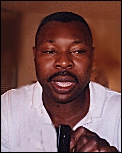 A:
If you take a look at the history of African soccer, when African teams
don't do well, there's every tendency to reorganizing not only the team
but also team administration. I think as of now, the Nigerian
team is at least due for an overhaul and possibly the administrative change
as well . But for right now, we need a coach. I'm not saying that Bora is
a bad coach , after all he has been very successful in having taken four
countries including the American team to a World Cup. But we need to
look at the technical personality of the Nigerian team. Even Bora has
A:
If you take a look at the history of African soccer, when African teams
don't do well, there's every tendency to reorganizing not only the team
but also team administration. I think as of now, the Nigerian
team is at least due for an overhaul and possibly the administrative change
as well . But for right now, we need a coach. I'm not saying that Bora is
a bad coach , after all he has been very successful in having taken four
countries including the American team to a World Cup. But we need to
look at the technical personality of the Nigerian team. Even Bora has
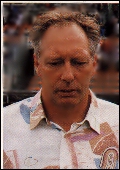 stated
that he has never seen a team with the ability of the Nigerians. However,
we don't actually need a coach with the credentials of Bora. For instance,
we need a coach such as Bonfrere Jo. Bonfrere being aware that the
goalkeeper was not too good, he (Bonfrere) would have utilized a 4-4-2 formation
rather than a 3-4-4 formation which Bora introduced into the Nigerian system.
To attack, attack ,and attack caused us to concede more goals at the end
of the day than goals scored. Another thing is that the Nigerian team
that played in the Olympics concentrated on speed. However the Nigerian team
that played in France 98 compromised speed for ball possession. Although
the nucleus the these teams are basically the same, it was our tactical approach
which was responsible for our loss of speed. If that speed was re-infused
into our system we would outweigh our opponents as we have in the past. We
have wingers such as Victor Ueba who is a great runner, Babangida who is
a good runner. These are excellent players. Thus holding onto the ball with
players such as these could not serve any purpose.
stated
that he has never seen a team with the ability of the Nigerians. However,
we don't actually need a coach with the credentials of Bora. For instance,
we need a coach such as Bonfrere Jo. Bonfrere being aware that the
goalkeeper was not too good, he (Bonfrere) would have utilized a 4-4-2 formation
rather than a 3-4-4 formation which Bora introduced into the Nigerian system.
To attack, attack ,and attack caused us to concede more goals at the end
of the day than goals scored. Another thing is that the Nigerian team
that played in the Olympics concentrated on speed. However the Nigerian team
that played in France 98 compromised speed for ball possession. Although
the nucleus the these teams are basically the same, it was our tactical approach
which was responsible for our loss of speed. If that speed was re-infused
into our system we would outweigh our opponents as we have in the past. We
have wingers such as Victor Ueba who is a great runner, Babangida who is
a good runner. These are excellent players. Thus holding onto the ball with
players such as these could not serve any purpose.
Q: What has been the impact of Nigerian soccer on the world as a whole?
A: Well, our players have made an impact all over the world. Kanu and West
play for Inter, Finidi in Spain, Okocha in Turkey and so on. As you are aware,
Nigerian players are in high demand, and they improve the level of soccer
wherever they are . In fact, when I lived in Japan, it was the Nigerian
team (aside from the Brasilian team) where the average Japanese fan could
could readily tell you the names of five players on the team . If you ask
them about the Italian or English team they don't know the names.
But the Brazilians and Nigerian are the favorites in Japan. Can you imagine
hearing Japanese people on the street talking about Amokachi or Taribu West?
It's amazing, but back to the question of impact, I believe that with
a coach who consistently makes the right tactical decisions along with
the support of the Nigerian government, the Nigerian team could make an even
larger impact on world soccer in the future.
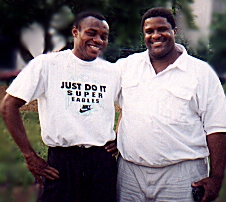
Chidi Nwanu, a member of the 1994 Nigerian Super |
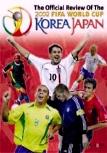 |
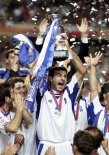 |
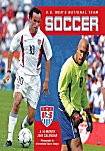 |
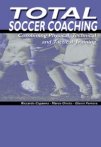 |
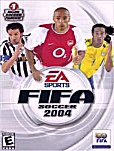 |
| Videos | New Posters | 2002 CALENDARS | Books | Games |
| ADD YOUR LINK
TO LA CANCHA Click above and exchange links with the "World's Leading Soccer Magazine!" |